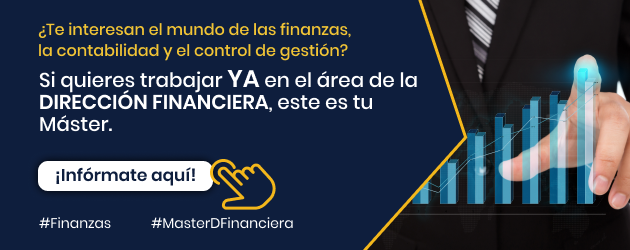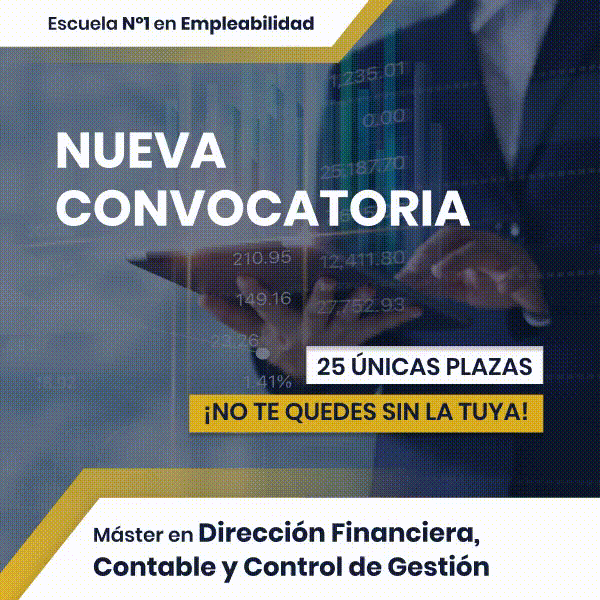We have commented on other occasions about some great commandments which, I believe, a startup should respect as much as possible:
- Entrepreneurship and financing are two completely different aspects. What is truly important in the field of entrepreneurship is that the startup has a competitive and sustainable business model over time.
- That there is no better financing than “that is not needed.”
- The best financing is that which comes from sales and collections from clients.
In any case and if financing is needed, we recommend debt instead of equity, especially in the early phases of the startup. Debt:
- It lowers the cost of capital (WACC-weighted average cost of capital) and therefore, in order to create value, it requires a lower economic profitability of the business.
- It does not interfere in the governance of the startup, not diluting the ownership of the founding partners.
- It is cheaper, in terms of finances and management effort on the part of the startup's founders.
Let's analyze the myths and realities of the Business Angel along with important errors that they usually commit entrepreneurs and private investors (Business Angels) in their relationship process.
Entrepreneur mistakes
Let's start with the possible errors of the entrepreneurs:
- Going to a financing round “too soon”. What is “too soon”? “Too soon” may mean that the startup does not have a minimum viable product, it does not even have a prototype to test in the market. Therefore They do not usually have recurring clients and much less income. In this environment, it will be difficult to attract capital, especially at a price (startup valuation) that is reasonable for the founding partners. We believe that the success of raising the round is directly proportional to the visibility, clarity and recurrence of the business model.
- Without a team completely dedicated to the project and with diverse and clear management capabilities. We have already commented how surprising it may seem that a company with a strong technological and digital component does not have internalized the function of C.T.O. (chief technological officer) and that said function is outsourced.
- Let them wander and waste so much time in raising the round. It would be good if went to institutions and investment forums that can really help them. There are good investment forums and others that are not so good. Those are good who have a large and active community of investors. It is strange that entrepreneurs are not told which investors will be on the forum or have seen their project, especially if the forum is paid. The first element of value would be that the forum has a investor community that carry out operations on a regular and frequent basis. The second, that entrepreneurs could contact investors, which in addition to offering them financing, will provide them with that “Smart money” linked to commercial contacts of interest, mentoring, etc. It seems reasonable to think that the activity of generic and transversal investment forums is already mature in Spain and that it is necessary to think about more vertical or specialized investment forums. It is also possible that in such a case, the startup finds an investor who, in addition to providing the money, can provide the value indicated as “Smart money.”

- That they have not managed the process of calculating the financial valuation of the startup. Once the investor has decided to invest in the startup, it is important to start the valuation process. Valuing a startup has specificities that make it different from a traditional company valuation. It is necessary to combine a series of methodologies that allow establishing a reasonable and satisfactory price range for both. However, it is very important for an entrepreneur and investor. The entrepreneur has to think that after the first round a second, third, etc. can come. It can be a consequence of successful growth of the startup. We will devote some additional space to this important aspect of the entrepreneur-private investor relationship (business angel).
- The entry of an investor (business angel) into the startup incorporates an important “legal corpus” through multiple clauses of the Partners Agreement that must be reviewed and analyzed in detail by expert lawyers “close” to the startup.
Investor mistakes
Let's continue with the possible errors of the investors:
- Investing without knowledge of critical elements of this type of investments and the necessary patience. Investing in a startup is a high-risk process. It is a business unit where at the beginning nothing is proven: the business model is not clearly proven, nor is the team, the capacity for growth, etc. On the other hand, an investment in a startup is an illiquid investment (there is no secondary market) and when the startup “goes into a tailspin”, there is no support price as for example in equities, at a certain price it always reverses. the trend and money comes in at that new price.
- Invest without adequate knowledge of the project nor the necessary training in the process. We recommend that private investors (business angels) invest in sectors/businesses that they “understand”, that they know because they are or have been close to them in their professional life. Otherwise, I'm not sure how they would be able to evaluate the suitability of the opportunity beyond the nose and more formal aspects of the project. It is also necessary that they be trained in this type of investment: project analysis, valuation and legal aspects of the investment. A quick and valid way to do this may be by belonging to an investment forum.
- Having seen few startup projects and with it have a short experience. We recommend that investors have previously seen many possible investments before making the first investment. To do this, it is recommended that the investor belong to an appropriate investment forum. There are investment forums that are interesting to us because they capture a flow of low-value projects and on the other hand they filter and select projects very poorly.
- Poor subsequent monitoring of your investment. It is important that the investor subsequently monitors the evolution and compliance of the business plan by the startup. Sometimes, the investor claims that this is motivated because the startup does not regularly send him information on its evolution. This is a critical aspect that must be part of the Partners Agreement, is a fundamental right that the investor has.
However, when these aspects are taken into account, entrepreneur and investor can form a union that creates value for both and for society. There are magnificent examples of that necessary cooperation that leads to rapid and efficient growth of the startup as well as an adequate return on the risk and capital put into play by the investor.
Do you want to know more about the author of this post? Access your LinkedIn profile, Fernando Moroy, president of the Madrid Chapter of the Business Angels Keiretsu Network of San Francisco.




































